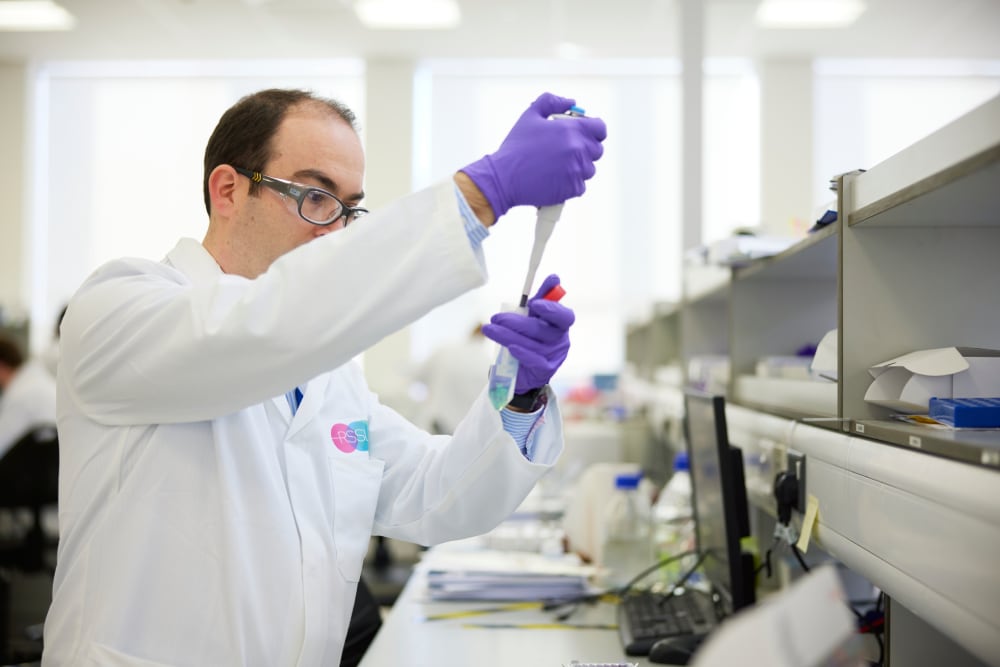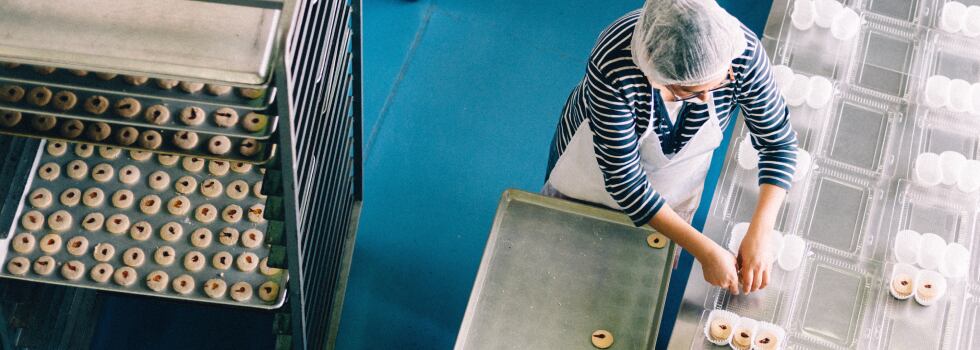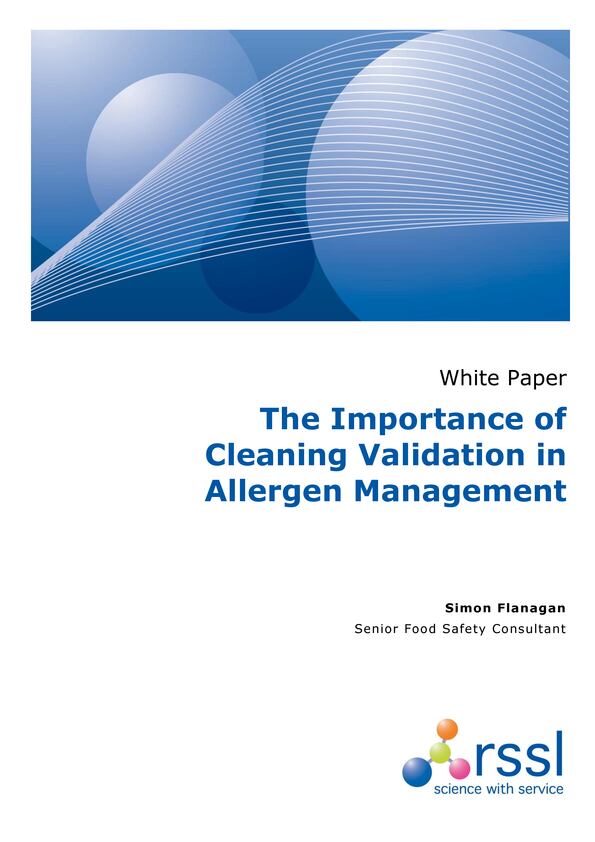The global supply chain is being challenged like never before. Maintaining food safety is paramount, but so too is product quality and costs. Managing this level of change requires an agile response based on robust analytical data – and it starts with identifying the risks. Rob Griffiths - Technical Specialist at RSSL explains.
Supply chain squeeze
Global events continue to impact the supply chain and have created a level of disruption on an unprecedented scale. Extreme weather conditions, Covid repercussions and the war in Ukraine are all putting pressure on some of the world’s key commodities.
Wheat supplies are under severe strain, with global inventories reportedly1 at their lowest level since 2008. As the so-called ‘bread basket of Europe’, Ukraine is one of the top three wheat exporters in the world but the ongoing conflict is stifling supply routes. At the same time, last year’s poor harvest in the US and Canada, together with the current drought in France and India’s heatwave-driven export ban is compounding an already difficult situation.
Equally concerning for the food industry is the shortage of sunflower oil. Largely caused by the Ukraine crisis – the country accounts for 47%2 of the world’s supply – its knock-on effect to the wider oils and fats market is adding to the problem. Not only are prices soaring, greater demand for alternative oils has seen some regions ban exports in a bid to protect their domestic markets. Indonesia3, for example, banned palm oil exports earlier this year. As the world’s largest producer, the move sparked global concern, protests from local farmers and was ultimately lifted three weeks later.
For producers, these and other recent developments have brought into sharp focus our reliance on certain geographic regions. It has also created an urgent need to have systems in place to either find new suppliers or reformulate products with alternative ingredients and/or raw materials. In both cases, understanding and evaluating potential safety risks, as well as the impact on product quality is vital.
So what does this look like in practice?

Testing times
Working with new suppliers is almost inevitable in the current climate, but a lack of history means that carrying out thorough checks on newly sourced materials is more important than ever.
Robust analytical tests to ensure the ingredient or raw material is genuine and has not been adulterated is an essential first step. As is ruling out any form of contamination – particularly when it comes to regulated allergens. The recent RASFF alert4 regarding the presence of peanut protein in soy lecithin from India shows just how rapidly this kind of issue can escalate and impact the global supply chain. In this case, RSSL’s specialist allergen team was closely involved with providing urgent analytical support and food safety risk assessments to concerned companies around the world.
Verifying the quality of a supplier’s ingredient is equally important. Any change can affect the final product in a number of different ways, so comparing how the newly sourced material behaves against key performance parameters is key.
A substandard oil, for example, may not have the same stability in terms of oxidation and development of rancidity so is unlikely to achieve the required shelf life. Whereas variation in a fats solid fat content could impact product structure, mouthfeel and texture, or even cause issues during processing or in the manufacturing line which would be costly and time consuming to rectify.
That’s not to say that some of these issues can’t be addressed through reformulation. Using an antioxidant with a less stable oil, for example, can help to bolster poor stability. But only by analysing key functional properties and identifying potential problems in advance, can producers take effective mitigating measures.
It’s also important to note that speed is often of the essence in these situations. Faced with current shortages, manufacturers may have no choice but to switch ingredients and need to assess the shelf- life and stability of potential alternatives as quickly as possible. This is when our accelerated testing techniques come into their own; by screening a number of formulations faster than the standard approach, we are able to progress optimised formulations to full shelf-life testing within a much shorter timeframe.
Ultimately, targeted analytical testing provides a comprehensive understanding of an ingredient’s functionality and answers fundamental questions such as: Is it safe? Does it affect product quality? Will consumers notice? Do we need to make changes to the formulation or process to compensate? Can we keep within an acceptable price bracket?

Representative sampling
One issue that is often overlooked – and arguably undervalued – is the sampling process itself. Getting a representative sample for analytical testing is important for accurate and reliable results. Knowing how many samples to take, where from and how to make sure they are right for the relevant type of analysis are all key issues. But navigating the various complexities is not easy.
For example, there are ISO standards in place for large bulk containers. Certain industries, such as cereals and dairy have their own guidelines, but the rules vary from country to country.
We believe that a risk-based approach to sampling is the most effective. This should never be a random process, but carefully thought through, which is why our advice is given on a case-by-case basis. In the case of contamination, for example, the aim is to design a sampling plan that maximises the chances of detecting the contaminant if it is present. This risk-based approach will balance the number of samples versus the cost of the testing.
Supplier verification
Changing suppliers under pressure also demands careful management. Whereas sourcing a new ingredient from an existing supplier might only require minimal testing to ensure specification is met, this would not be sufficient for a completely new partnership. The new supplier may have a completely different risk profile, so a full suite of safety and quality testing is likely to be needed – but adds considerable complexity, time and cost to the process. None of which is welcome when the need is urgent.
Again, this is when businesses benefit from our expert approach to the supplier approval process – both in terms of the operation and the ingredient or material in question. By identifying and understanding the risks, measures can then be put in place to mitigate them as far as possible, in the short and longer term.
New normal
In many ways, the pandemic followed by the war in Ukraine appears to have created the perfect storm to disrupt the supply chain. The immediate outlook remains relatively grim, with experts forecasting things won’t improve for some time. It also raises the worrying question of whether this level of disruption will become a more regular occurrence.
But there are positive signs. In the early days of Covid, the food industry showed itself to be responsive and agile. Businesses pivoted to survive. Systems, processes, product development and mindsets all adapted to highly unusual circumstances. So, there’s no reason to believe that this creative thinking won’t continue.
Most importantly, we’re seeing businesses look at supply chains and distribution channels in a new light. Part of this focus is establishing links with trusted partners – such as RSSL’s analytical testing, product development and risk assessment experts - to protect them against a potentially uncertain future.
For further information about RSSL’s product development, analytical testing or risk assessment services please visit www.rssl.com or email enquiries@rssl.com or call +44 (0)118 918 4076
[1]https://www.insider.com/world-has-10-weeks-of-wheat-supplies-left-in-storage-food-expert-warns-2022-5
[2]https://www.wsj.com/articles/ukraine-war-sparks-global-scramble-for-cooking-oils-11649239342
[3]https://www.bloomberg.com/news/articles/2022-05-19/indonesia-lifts-palm-oil-export-ban-in-relief-to-global-market
[4]https://www.foodsafetynews.com/2022/05/concerns-raised-over-peanut-traces-in-food-additive-from-india/






